![Image of Plazoom]()
By Plazoom
Last updated 08 October 2025
World Kindness Day activities are a great way to help children develop empathy, friendship skills and an understanding of the impact of kind actions.
It isn’t just about one day of activities either. Instead, it’s a chance to cultivate a lasting culture of care, respect and positive relationships in your school.
The resources below provide age-appropriate ways for pupils to:
- reflect on their actions
- consider others’ feelings
- build meaningful friendships
- develop literacy, communication and social-emotional skills
When is World Kindness Day?
World Kindness Day takes place each year on 13th November.
Start with our free whole-school resource pack. It encourages pupils to practise and celebrate kindness through an Acts of Kindness checklist and accompanying award certificates.
It will help inspire thoughtful behaviour, promote discussions about the importance of kindness and recognise pupils’ positive actions in school.
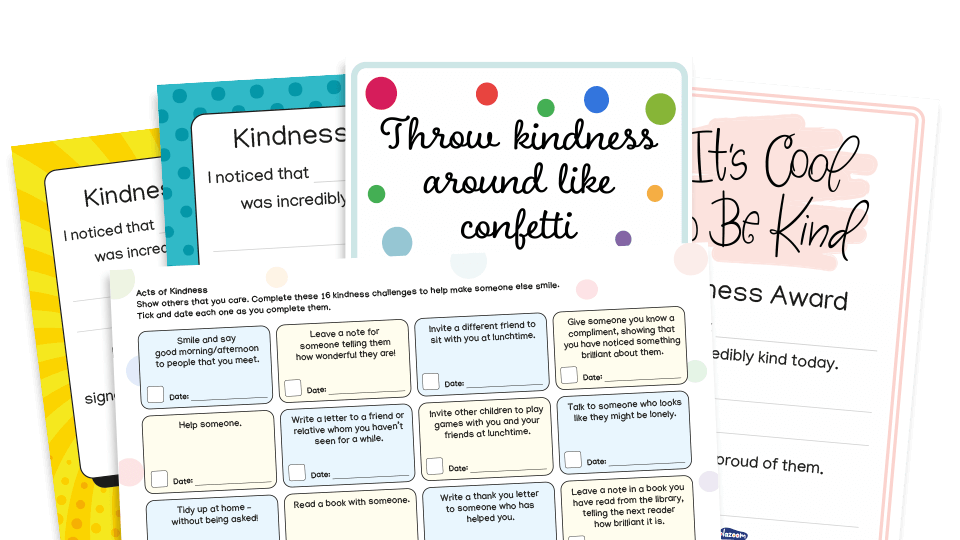
EYFS World Kindness Day activities
Young learners can explore kindness through stories, role play and creative activities that support social-emotional development and early literacy.
This EYFS resource pack helps young learners explore and celebrate kindness through discussion, image cards and medal or badge activities. It supports social-emotional development and Early Learning Goals in speaking, self-regulation and building relationships.
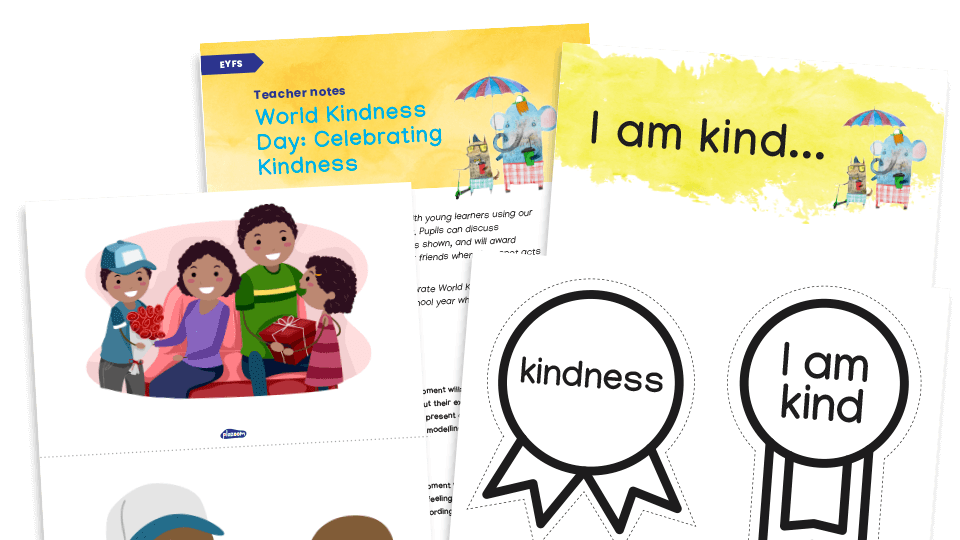
Meanwhile, our second EYFS resource pack uses photo image cards to help children explore and recognise kind friendships, supporting discussions about sharing, helping, and positive relationships.
It aligns with Early Learning Goals in listening, attention, understanding and building relationships.

KS1 activities
For younger primary pupils, World Kindness Day offers opportunities to discuss what it means to be a good friend and practise kind behaviours in the classroom.
Our Kind Classmates KS1 resource encourages pupils to promote kindness by writing compliments about their classmates. They'll use images, vocabulary cards and guided worksheets to inspire discussion and celebrate positive qualities.
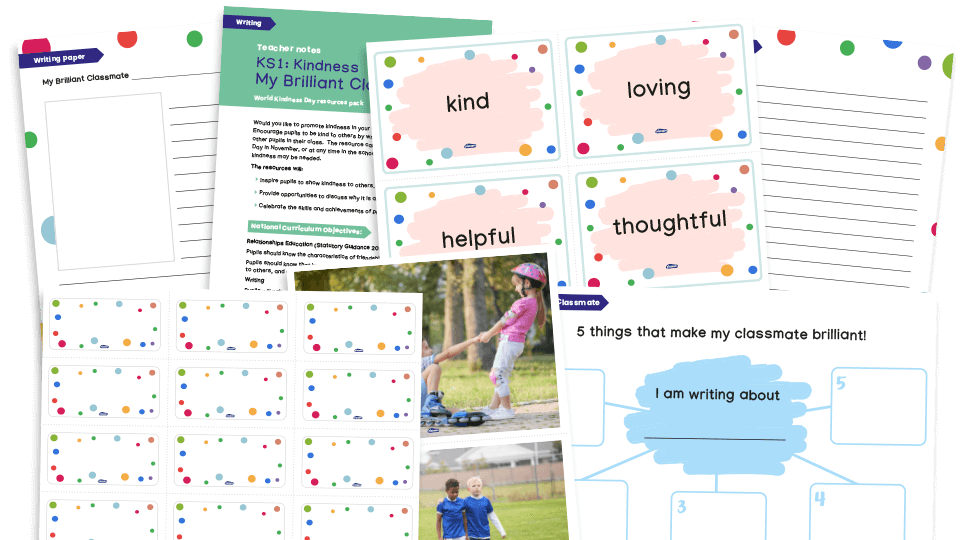
Meanwhile, our 'What makes a good friend?' activity helps Year 1 and 2 pupils explore the characteristics of positive friendships by sorting cards and creating a 'job advert' for a good friend, supporting discussions about trust, kindness and healthy relationships.

If you want to focus on reading comprehension, this Year 1 unit uses Margaret Bateson-Hill’s original story Friends Come First to develop pupils’ understanding of friendship, empathy and emotions like envy and patience.
Through illustrated texts, PowerPoints and guided activities, pupils will practise key comprehension skills such as retrieval, sequencing, prediction, inference and personal response.
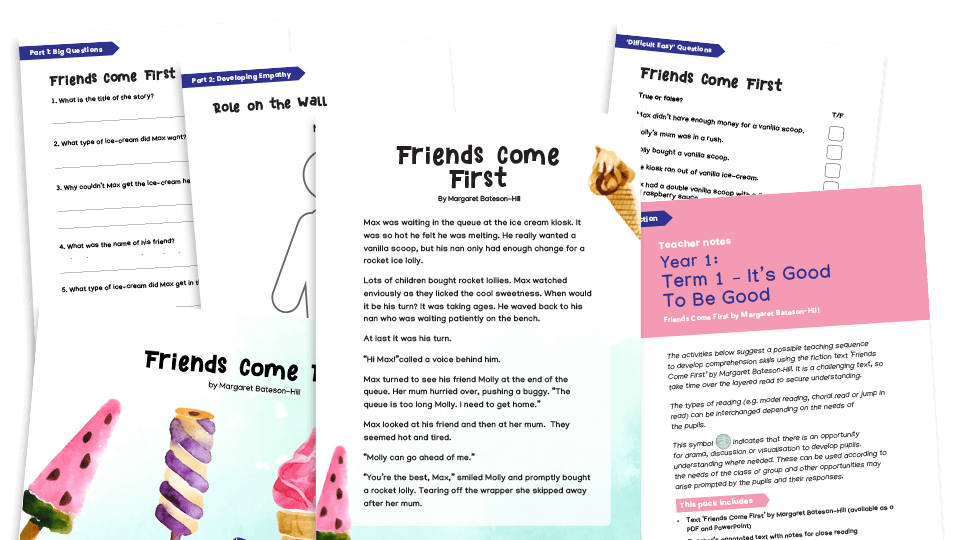
KS2 activities
Older pupils can explore kindness in more complex ways, linking it to reflection, writing and whole-class discussions about positive relationships.
Our KS2 kindness resource helps pupils explore feelings, empathy and kindness by discussing scenarios and responding to 'Agony Aunt' letters.
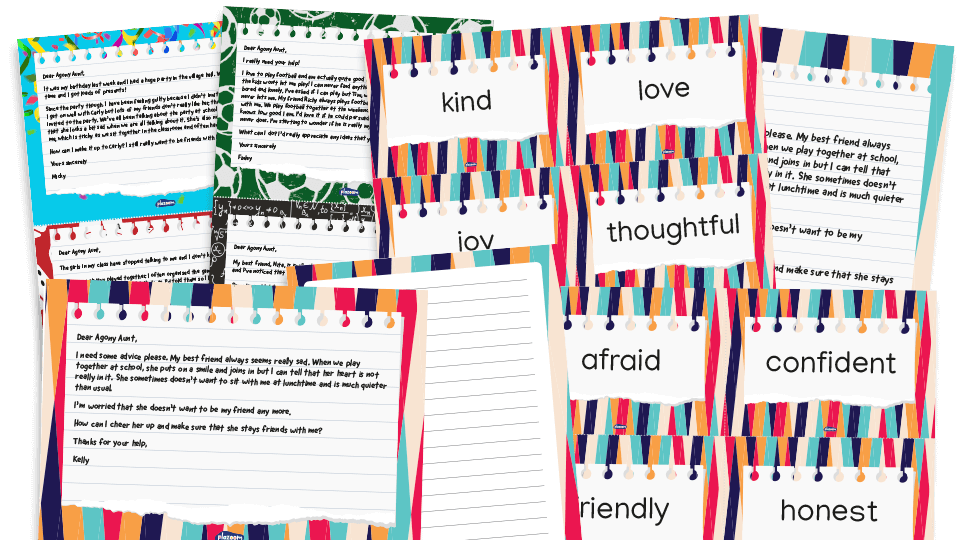
Read more about kindness